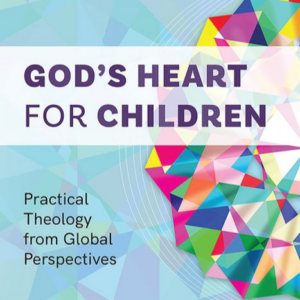Editor's Note
This article is presented by the Lausanne Children and Family (CnF) Network in partnership with WEAVE. To connect with the CnF network, email cnfnetwork@lausanne.org.
The year was 1727. The place was Germany. The Moravian community, one of the oldest Protestant denominations, was fasting and praying. Just like at Pentecost, the Holy Spirit moved, bringing revival and focus. The entire Moravian community began a prayer meeting that lasted for 100 years. From that century-long prayer meeting came the beginning of the modern missions movement.
How do you sustain a prayer movement for 100 years? The answer may surprise you: by including children.[1]
The revival started first among the adults, and then the children. One historian said, ‘All the children were seized with an extraordinary impulse of the Spirit, and spent the whole night in prayer. No words can express the powerful operation of the Holy Spirit upon these children, whose lives were so transformed.’[2]
Night and day, at every hour, believers took turns interceding for the nations of the world. Parents and their children prayed together, passing down a fervent love for God and the nations from one generation to the next. The modern missions movement was founded in prayer, but it was sustained by multigenerational faithfulness.
Family and God’s Mission
God created the very first family with his mission in mind (Gen 1:27-28). Through Adam and Eve and their descendants, and later through Noah’s descendants, God planned to fill the earth with families—image-bearers who would reflect his glory among the peoples of their day. In Genesis 12, after the scattering at the tower of Babel, God initiated with Abraham what would later become a multigenerational covenant. God promised to bless all the peoples of the earth through Abraham and his descendants.
In Genesis 18, God reveals his strategy to ensure this plan—generational faithfulness:
Abraham will surely become a great and powerful nation, and all nations on earth will be blessed through him. For I have chosen him, so that he will direct his children and his household after him to keep the way of the Lord by doing what is right and just, so that the Lord will bring about for Abraham what he has promised him. (Gen 18:18-19, emphasis added)
In the context of God’s global, centuries-long covenant, what was Abraham’s specific calling as a parent? Abraham was to love God and be a blessing to the nations around him, and to disciple his children to go and do likewise.
In establishing the nation of Israel, God gave specific instructions that embody his strategy of generational faithfulness. God’s people were to love him with their whole being, and teach (or disciple) their children in and through all of life’s ordinary moments (Deut 6:4-9, Ps 78:1-7).
We don’t often consider how families—even the ones with young children—can be a central part of our mission strategy.
Although families have always been strategic in God’s global plan of redemption (including the family that is the church body), we don’t often consider how families—even the ones with young children—can be a central part of our mission strategy. We talk about long-term and short-term workers, outreach initiatives, and strategic approaches like church planting and business as mission. But how often, in developing our mission strategy, do we talk about partnering with parents as they disciple their children to know God’s mission and be a blessing to the nations?
What is lost if we view the inclusion of children and families in our mobilization and mission strategies as an add-on rather than a core component? What happens when we don’t consider the core role of family and children in God’s mission?
We lose potential workers for the harvest field. When a generation of young believers, filled with the same Holy Spirit as you and I, does not hear about unreached peoples and God’s mission until they reach adulthood, they live unaware of the role they have in God’s story. Their worldview, which is fully formed by age 13,[3] lacks an understanding of how their identity and purpose is connected to God’s heart and plans for the nations.
ARTICLE
God’s Heart for Children Webinars
Learn about God’s heart for ministry with and for children in complex situations.
We miss out on children like Hope, who knew she had a role in reaching the nations. At age nine, she prayed every day for the country of Mongolia until she read an article two years later celebrating that the first 500 Mongolians had come to Christ. The title of that article: ‘Hope for Mongolia.’[4]
We also lose the impact of family mobilization on church culture. As entire family units within a congregation begin to understand God’s heart for the nations, and as the children in these families are raised up as world Christians, church culture begins to change. Not only from the top down, but through a grassroots movement of families who cease to view mission as the specialized activity of a few, and begin to view mission at the core of who we are as disciples of Jesus. Transformation like this occurs when parents and caregivers are living out their conviction about the powerful role of home discipleship in seeing Revelation 7:9 realized, like Doreen, a mother from Kenya, who said, ‘I now know my children were not only saved from something, but for something.’
Making Families Central in Our Mission Strategy
If God made families the central focus of his mission strategy, maybe we should too. Here are some ways to begin.

1. Talk about God’s mission regularly, and in places where parents will hear it.
To mobilize families, we need to regularly talk about God’s mission to be known and worshiped by people from every nation, tribe, and tongue, and how every believer has a part to play. We need to show how God’s desire to reach the nations is woven throughout the Old and New Testaments and how God blesses his people for the purpose of being a blessing to the nations.
Parents and caregivers cannot impart to their children what they do not first understand and believe themselves.
Parents and caregivers cannot impart to their children what they do not first understand and believe themselves. Nor are they likely to engage in God’s mission as a family if it seems out of reach or irrelevant for their season of life. Adults embracing God’s heart for the nations as a biblical component of their everyday faith, and knowing how to communicate this vision to their children, is the foundational start to mobilizing families.

2. Help parents and caregivers live out their biblical responsibility of discipleship.
We need to continually bring parents and caregivers back to the importance of being spiritual influencers in their children’s lives. The local church can be an essential partner in helping parents and caregivers to disciple their children.
Many parents and caregivers, including those raised in Christian homes, have never experienced the type of discipleship illustrated in Deuteronomy 6. It can be intimidating. We can partner with caregiving adults by regularly encouraging them in their efforts, providing classes to help them gain specific skills, and providing models of what it looks like to lead devotions or have ongoing conversations about God and his mission with their children.
ARTICLE
Nurturing a Missional Heart in Our Children
While we’re busy mobilizing and leading others, how can we help our own children grow a heart for the world?

3. Advocate for the role of children in completing the Great Commission.
Take time for an honest evaluation of how you or your culture views children. Do we see them as the future church or part of the church now, while they are young? Do we truly believe the Holy Spirit works in and through them just as he does in and through adults?
Many children in Scripture played a strategic role in God’s work. As a young girl, Miriam watched over and protected Israel’s future leader as he floated in a basket in the Nile River (Exo 2:3-8). As a very young boy, Samuel heard God’s voice when no one else was listening (1 Sam 3:1-10). Naaman’s servant girl felt compassion for her idol-worshiping captor who was plagued with leprosy. She pointed Naaman to God’s prophet and brought his family hope (2 Kings 5:1-3). After Jesus’ triumphal entry into Jerusalem, children in the temple courts praised him as the Son of David (Matt 21:15-16).
Just as in Bible times, God is using children in his story today.
Just as in Bible times, God is using children in his story today. Mobilizing children brings short-term and long-term benefits as families participate in God’s mission now, while their children are young, and eventually launch disciples who are already on mission when they become young adults. Churches and organizations should seek to intentionally elevate children and their importance in seeing the Great Commission realized. We must provide opportunities for them to serve and participate as members of the church. We must share their stories. We must invite them into opportunities and decisions.

4. Value the role of the family in God’s mission.
Reaching the nations requires those who will go. Prayerfully, many families will say ‘yes’. Those who go will walk through difficulties and hardships as they work cross-culturally. We must both celebrate them and support them well. But for every missionary that goes, dozens of families are needed to send them, for ‘How will they go unless they are sent?’ (Rom 10:15).
We must value all the roles believers play in seeing the unreached reached. Celebrate the senders, the families who strategically use their finances to support workers and efforts among the unreached. Celebrate families who are reaching the nations through faithful intercession, just like nine-year-old Hope and her parents. Celebrate the welcomers, those who intentionally seek out and love the nations around them—refugees, international students, business workers, etc. Celebrate the mobilizers, those who lead in the church and across their community to help others catch a vision for the nations.
How would our church cultures be different if every family believed they had a strategic part in God’s story of blessing the nations?
How would our church cultures be different if every family believed they had a strategic part in God’s story of blessing the nations?
To see the Great Commission finished, to see every people group loving and worshiping Jesus, we need all believers.
The work of family mobilization is a marathon. It reaches into sacred places—the heart of family life—and lasts 18 plus years. It requires intentionality and perseverance. But, oh the rewards of that lasting fruit. To see the Great Commission finished, to see every people group loving and worshiping Jesus, we need all believers. This includes parents and caregivers and their young children.
Resources to Explore:
- Parenting with a Global Vision: A six-week small group study for parents, available in multiple languages.
- Access dozens of activities and articles about family and missions at weavefamily.org
Editor’s Note: This article is presented by the Lausanne Children and Family (CnF) Network in partnership with WEAVE. To connect with the CnF network, email cnfnetwork@lausanne.org.
Endnotes
- Story of the Moravians, Light of the World Prayer Center
- The History of Revivals of Religion by William E Allen
- Barna Group, Ltd.,“Changes in Worldview Among Christians over the Past 13 Years”
- Kids Making A Difference by Pete Hohmann


